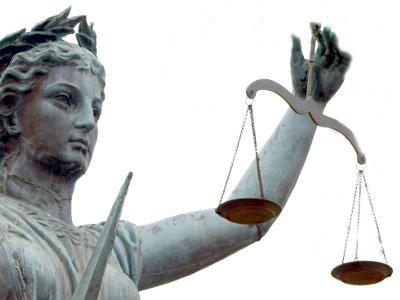D.C. District Court: Copyright Trolls Abuse the System
 WASHINGTON – A federal appeals court on Tuesday delivered what may be a fatal blow to the copyright troll business model when it ruled copyright owners may not file massive lawsuits in a single jurisdiction as an attempt to uncover identities of internet users who may not be subject to legal action in that jurisdiction.
WASHINGTON – A federal appeals court on Tuesday delivered what may be a fatal blow to the copyright troll business model when it ruled copyright owners may not file massive lawsuits in a single jurisdiction as an attempt to uncover identities of internet users who may not be subject to legal action in that jurisdiction.
Although several district courts nationwide have delivered similar rulings in copyright-infringement cases, Tuesday’s ruling represents the first time a federal appeals court has weighed in on the matter.
At the heart of the case is a business model employed by AF Holdings, part of the now-notorious Prenda Law legal hydra that has faced increasing scrutiny of its practices since 2010. After filing John Doe lawsuits in multiple venues, the Prenda Law entities sought court subpoenas in an attempt to unmask the real identities behind the IP addresses of thousands of end-users the firm accused of illegally downloading copyrighted porn videos from peer-to-peer file-sharing networks. In some cases, the list of anonymous defendants numbered more than 1,000. Internet service providers balked, challenging the subpoenas on the basis Prenda Law was engaged in a fishing expedition. In several cases, some of the subpoenaed ISPs did not provide service in the subject jurisdictions.
After obtaining personal information about the allegedly lawbreaking downloaders, Prenda sent threatening letters offering to settle with the defendants for slightly less than they would have paid to mount a bottom-dollar legal defense. While maintaining their innocence, many of the accused settled in order to avoid public embarrassment.
According to published accounts from some of the 25,000 defendants Prenda sued through 2012, the firm dropped several cases after the defendants indicated intent to face their accusers in court. Meanwhile, settlements enriched Prenda by more than $15 million despite never litigating a case, according to an analysis published by Forbes.
During 2013, district courts cited and fined Prenda’s various corporate identities and several principals — including John Steele, Paul Hansmeier and Paul Duffy —for shady tactics including deception and what some courts characterized as extortion, fraud, conspiracy and racketeering. Courts also referred Prenda attorneys and firms to the U.S. Attorney’s office, the IRS Criminal Investigation Division, state bar associations and other prosecutorial and professional organizations for investigation of potential professional misconduct, identity theft, forgery and tax fraud.
In the case before the U.S. Court of Appeals for the District of Columbia Circuit, the court labeled the Prenda/AF Holdings model abuse of the legal system.
“This decision is a crucial victory,” said Electronic Frontier Foundation Intellectual Property Director Corynne McSherry. “We are thrilled that a higher court has recognized that it is unfair to sue thousands of people at once, in a court far from home, based on nothing more than an allegation that they joined a BitTorrent swarm.”
EFF Staff Attorney Mitch Stoltz said the decision struck a blow for fairness and personal privacy.
“Once a troll gets the names it’s looking for, then it already has what it needs to put its shakedown scheme in motion,” he noted. “For the defendants, it will come down to risking being named in a lawsuit over a pornographic movie, or settling for less than the cost of hiring an attorney. As a matter of law and basic fairness, a copyright plaintiff needs to show that its case is on solid ground before putting hundreds of internet users into that kind of bind.”
The district court’s decision is here.









